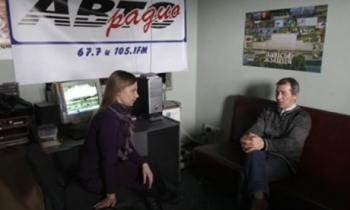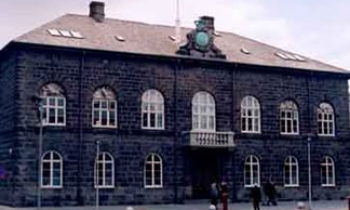The kidnapping of Alan Johnston, the BBC's Gaza reporter, has shocked the community of foreign journalists covering the Israeli-Palestinian conflict. It is also having a devastating impact on the coverage of the story. In the month since he was abducted from the street outside his office, I have not been to Gaza once. The same is true for many of my colleagues who are members of the Foreign Press Association, a group of almost 500 journalists working for the foreign news media in Israel and the Palestinian Territories. That's bad for journalism and bad for the Palestinians of Gaza.
Alan is the only foreign reporter who lives in Gaza - among the people whose stories he presents with such professionalism and balanced understatement. Most of us live in the relative comfort and security of Jerusalem, and in better times we chose to commute to Gaza. It's only an hour and a half's drive away.
Journalists enter the Gaza Strip through the Israeli-controlled checkpoint at Erez. It has recently been refurbished and now resembles an airport terminal building, with a sequence of sliding steel doors and concrete-lined walkways. It is a bizarre transition between two very different worlds.
When the story in Gaza was big, many of us stayed for several days at a time. We hooked up with our invaluable Palestinian fixers and colleagues who helped us plot a course through the maze of Palestinian factional politics. But ever since Alan's disappearance, fewer and fewer of us have dared to go.
There have been reports of armed gangs turning up at the local TV production offices in Gaza looking for more foreign journalists to kidnap. That has scared many of us. The Western consulates, including the British one, continue to issue dire warnings and discourage us from going. The danger of further abductions seems real enough.
Until recently, Alan's BBC colleagues were staying in Gaza working for his release. Now they have pulled out, fearing for their own safety. In the five years I have been here, working for ABC News, the situation has never been this bad, the threat against foreign journalists so real.
For people charged with covering the conflict between the Israelis and Palestinians, this is a serious limitation on our work. Ever since the Israelis pulled out their settlers and soldiers in the summer of 2005, Gaza has provided the battleground for competing Palestinian factions and ideologies. It is the home of Hamas and the place in which the very character of the Palestinian national movement is being fought over. Far from becoming the model of a future Palestinian state that some optimists hoped for, it has become a lawless and chaotic place and, by definition, a compelling story.
Until a few weeks ago, Gaza's factional disputes found expression in violent confrontation. Dozens of young gunmen and innocent bystanders died in chaotic battles. There was even talk of a Palestinian civil war and Gaza was the place to be for the trouble-seeking foreign reporter.
The environment was certainly hazardous and several reporters were caught in crossfire, and there were some isolated cases of intimidation. But this was all in the realm of manageable risk. The kidnappings are different - Alan's in particular.
Other journalists have been kidnapped in Gaza. In 2006, two journalists from the American cable channel Fox News were held for two weeks. This had been the most serious abduction; in most cases, journalists were released after a day or two. The kidnappers allegedly got cash, weapons or jobs for their family members in the various Palestinian security services.
It is thought that the group responsible for the Fox abduction may also be behind Alan's disappearance, and may be of a different calibre. But there has been no claim of responsibility and, as far as we know, no demands made and no negotiations started to secure his release. Talk to different Palestinians and you get different theories as to why Alan is still being held. But most think his fate has become entangled in wider internal political struggles, and is no longer simply about cash, jobs for the boys or some new guns.
Alan's fate has scared us all and has changed the atmosphere dramatically. Before, we were aware of the danger but took the risk and continued to travel to Gaza. Now I haven't been for a month. I am losing touch with contacts, friends and the feel of the place. My fixer asks when I might next be coming, but we both know it won't be soon.
I have no doubt that if there were a huge story in Gaza tomorrow, many of us would go. But it's the background stories that are no longer being covered and these are the ones that can most effectively provide the context for this difficult and complex place. Not many of us will run the risk of being kidnapped for a mere feature story.
Several weeks ago, for example, a number of Palestinians were killed in Gaza when the wall of a sewage reservoir collapsed. People were drowned by a flood of human excrement. It was not a story that many foreign journalists covered but it said so much about the plight of Palestinians living in Gaza.
The mood among foreign journalists remains deeply pessim- istic. Alan was highly regarded by everyone who knew him in Gaza. It is a place renowned for its hospitality and the warmth of its welcome. That is why it is so shocking that the only foreign journalist who had the commitment and courage to live there full-time has been treated in this way. Every Palestinian I have spoken to tells me of their shame at this unhappy episode. They also realise that Alan's continuing detention means their stories remain untold.
The writer is the Jerusalem bureau chief for ABC News









